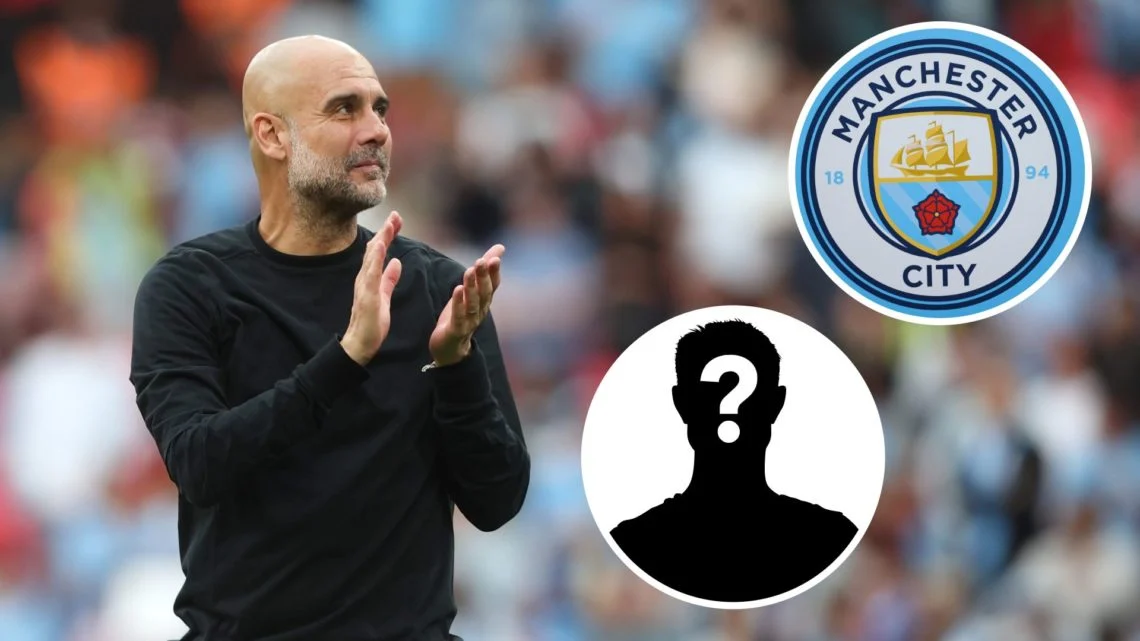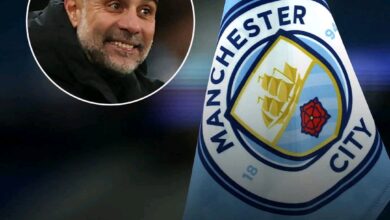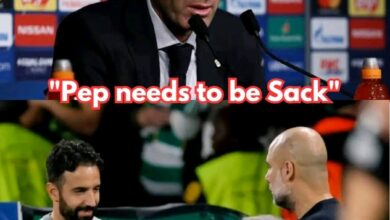Fabrizio Romano says Man City are now about to sign Newcastle United teenager, ‘set to join…’

Manchester City’s dominance in modern football extends far beyond their first-team success under Pep Guardiola. The Citizens have established themselves as one of the most formidable forces in youth recruitment across England, systematically identifying and acquiring the most promising young talents from rival academies. This strategic approach to youth development has become a cornerstone of the club’s long-term vision, ensuring a constant pipeline of potential stars who could one day grace the Etihad Stadium’s hallowed turf.
The latest chapter in this ongoing narrative involves Newcastle United’s promising Under-15 midfielder Ethan Fullen, whose impending move to Manchester City represents another significant coup in the club’s relentless pursuit of excellence at the grassroots level. Transfer specialist Fabrizio Romano’s recent revelation that City are “closing in” on securing Fullen’s signature underscores the club’s unwavering commitment to building for the future while maintaining their competitive edge in the present.
The transformation of Manchester City’s academy system over the past decade has been nothing short of remarkable. What was once considered a secondary concern has evolved into a world-class operation that rivals any youth development program globally. The club’s investment in state-of-the-art facilities, coaching expertise, and scouting networks has created an environment where young players can flourish and develop their skills to the highest possible standard.
This systematic approach to youth development has yielded impressive results across multiple age groups. City’s youth teams have consistently performed at the highest levels of English football, winning numerous titles and producing players who have gone on to represent their countries at various youth levels. The success has not been accidental but rather the result of careful planning, substantial investment, and a clear vision for what the academy should achieve.
The recruitment strategy employed by Manchester City is particularly noteworthy for its scope and ambition. Rather than limiting themselves to local talent, the club has cast its net wide across England and beyond, identifying promising youngsters from rival academies and persuading them to join the City family. This approach has occasionally drawn criticism from other clubs, who argue that the financial might of City allows them to poach talent unfairly. However, from the perspective of young players and their families, the opportunity to develop within City’s world-class facilities under expert guidance represents an almost irresistible proposition.
The signing of Ethan Fullen represents the latest in a series of high-profile youth acquisitions that demonstrate Manchester City’s commitment to securing the best young talent available. The club’s recent moves in the transfer market have shown a clear pattern of targeting players who possess exceptional technical ability, tactical awareness, and the mental fortitude required to succeed at the highest level.
Kaylum Moss, the 15-year-old midfielder acquired from Liverpool, exemplifies the type of player City seeks to add to their academy ranks. Despite his tender age, Moss had already established himself as one of the most promising talents in Liverpool’s youth system, possessing the kind of technical skills and football intelligence that caught the attention of City’s scouts. His transition from Merseyside to Manchester represents not just a change of clubs but an opportunity to develop within an environment specifically designed to nurture exceptional talent.
Similarly, the acquisition of Divine Mukasa from West Ham United highlights City’s ability to identify players with unique qualities and potential. Mukasa’s self-comparison to Kevin De Bruyne in terms of playing style suggests a player with exceptional vision, passing ability, and the kind of creative spark that can unlock the tightest of defenses. The fact that such a talented youngster chose to join City over other potential suitors speaks volumes about the club’s reputation for developing young players.
These acquisitions are not merely about collecting talent for the sake of it. Each signing represents a carefully considered investment in the club’s future, with detailed analysis conducted on every aspect of a player’s development potential. The scouting reports that inform these decisions consider not just current ability but also physical development prospects, mental resilience, adaptability, and the likelihood of successful integration into City’s playing philosophy
Ethan Fullen’s impending move from Newcastle United to Manchester City represents one of the most significant youth transfers of the current window. At just 15 years of age, Fullen has already established himself as one of the most promising talents in Newcastle’s academy system, demonstrating the kind of ability that has attracted attention from some of England’s biggest clubs.
Fabrizio Romano’s description of Fullen as a “huge talent” carries significant weight given the Italian journalist’s reputation for accuracy and his extensive knowledge of the transfer market. Romano’s sources within the football industry provide him with insights that few others possess, making his assessment of young players particularly valuable. When Romano describes a 15-year-old as possessing huge talent, it suggests that Fullen has demonstrated abilities that mark him out as exceptional even among his gifted peers.
The specifics of Fullen’s playing style and attributes remain somewhat mysterious, as is often the case with youth players who have yet to make their mark in senior football. However, the interest from Manchester City suggests that he possesses the technical skills, tactical understanding, and physical attributes that align with the club’s playing philosophy under Pep Guardiola. City’s recruitment team has developed a keen eye for identifying players who can adapt to Guardiola’s demanding tactical system, which requires exceptional technical ability, positional awareness, and the capacity to make quick decisions under pressure.
The timing of Fullen’s potential move is significant, as it comes at a crucial stage in his development. At 15, players are beginning to make the transition from youth football to more competitive environments, and the quality of coaching and facilities available during this period can have a profound impact on their long-term prospects. By joining Manchester City’s academy, Fullen would gain access to some of the finest youth development resources in world football, including world-class coaching staff, cutting-edge training facilities, and regular exposure to high-level competition.
The potential transfer of Ethan Fullen from Newcastle United to Manchester City adds another chapter to the complex relationship between these two clubs when it comes to player movement. While the clubs operate in different tiers of English football’s hierarchy, there has been a notable history of players who have represented both institutions during their careers.
James Milner stands out as perhaps the most successful player to have donned both the black and white stripes of Newcastle and the sky blue of Manchester City. Milner’s journey from Newcastle’s academy through to becoming a key player for City during their rise to prominence exemplifies the kind of career trajectory that young players like Fullen might aspire to achieve. His versatility, work ethic, and technical ability made him an invaluable asset for both clubs, and his eventual move to Liverpool demonstrated the level he was able to reach through consistent development and application.
Shay Given represents another significant figure in the shared history between these clubs. The Irish goalkeeper’s performances for Newcastle established him as one of the Premier League’s most reliable shot-stoppers, and his later move to Manchester City demonstrated his continued ability to perform at the highest level. Given’s career illustrates how players can successfully transition between clubs with different ambitions and playing styles while maintaining their high standards of performance.
Sylvain Distin and Craig Bellamy also feature in this select group of players who have represented both clubs. Each brought their own unique qualities and contributed to their respective teams’ objectives during their tenures. Their careers demonstrate the various pathways that professional footballers can take and the importance of adaptability in achieving sustained success.
The fact that only five players have represented both clubs highlights the relative rarity of such moves, making Fullen’s potential transfer all the more significant. Should he successfully establish himself at Manchester City and eventually break into senior football, he would join an exclusive group of players who have experienced the distinct cultures and ambitions of both institutions.
The transition from promising youth player to established professional represents one of the most challenging aspects of modern football. Statistics suggest that only a small percentage of players who join elite academy systems eventually establish themselves as regular first-team players, making the development process both crucial and unpredictable. Manchester City’s approach to youth development acknowledges these challenges while providing the best possible environment for young players to maximize their potential.
The club’s academy system is designed to address every aspect of a young player’s development, from technical skills and tactical understanding to physical conditioning and mental resilience. The coaching staff includes former professional players and qualified youth development specialists who understand the unique challenges faced by teenagers pursuing professional football careers. This comprehensive approach ensures that players like Ethan Fullen receive the support they need to navigate the complex transition from youth to senior football.
One of the key advantages offered by Manchester City’s academy is the regular exposure to high-level competition. The club’s youth teams compete in the most prestigious tournaments and leagues available, providing young players with experiences that closely mirror the intensity and pressure they will face if they progress to senior football. This exposure is invaluable in developing the mental fortitude required to succeed at the highest level.
The integration of academy players into first-team training sessions and matchday squads represents another crucial element of City’s development strategy. Young players who demonstrate exceptional ability and maturity are given opportunities to train alongside established professionals, providing them with insights into the standards required for success at the elite level. This gradual integration helps bridge the gap between youth and senior football while allowing coaching staff to assess readiness for first-team opportunities.
Pep Guardiola’s appointment as Manchester City’s manager has had a profound impact on every aspect of the club’s operations, including the academy system. Guardiola’s philosophy extends beyond first-team tactics to encompass the entire approach to player development, ensuring that young players are coached in methods that align with the club’s overall playing style and tactical principles.
The Spanish manager’s emphasis on technical ability, positional play, and tactical intelligence has influenced the recruitment criteria used by City’s academy scouts. Young players are now evaluated not just on their current ability but also on their potential to adapt to Guardiola’s demanding tactical system. This has led to a focus on players who demonstrate exceptional technical skills, quick decision-making abilities, and the intelligence required to understand complex tactical concepts.
Guardiola’s track record of developing young players throughout his career provides reassurance to families considering moves to Manchester City. His work with players like Lionel Messi, Andrés Iniesta, and Sergio Busquets at Barcelona demonstrated his ability to nurture exceptional talents and help them reach their full potential. While the comparison between established superstars and promising academy players may seem ambitious, the underlying principles of development remain consistent.
The manager’s involvement in academy affairs, while not extensive due to first-team commitments, provides valuable input into the overall development strategy. His feedback on young players who train with the first team helps identify those most likely to make successful transitions to senior football. This direct connection between the academy and first team ensures that development pathways remain clear and achievable for ambitious young players.
Manchester City’s investment in youth development represents a significant financial commitment that extends far beyond the immediate costs of acquiring promising young players. The club’s state-of-the-art training facilities, expert coaching staff, and comprehensive support systems require substantial ongoing investment to maintain their world-class standards.
From a strategic perspective, this investment serves multiple purposes. The development of homegrown talent provides potential solutions to squad composition requirements while reducing dependence on expensive transfer market acquisitions. Players who progress through the academy system often demonstrate exceptional loyalty and understanding of the club’s culture, making them valuable assets both on and off the pitch.
The financial regulations governing modern football, including Financial Fair Play rules and homegrown player requirements, make academy development increasingly important for clubs seeking to maintain competitive advantages. Players developed through the academy system are typically valued differently in financial calculations, providing clubs with greater flexibility in their transfer activities and squad construction.
The potential for significant financial returns through player sales also makes academy investment attractive from a purely economic perspective. Players who are developed through the system but do not establish themselves in the first team can often be sold for substantial fees to other clubs, providing returns that justify the initial investment in their development.
The acquisition of players like Ethan Fullen represents part of a broader strategy that positions Manchester City’s academy as one of the premier youth development institutions in world football. The club’s commitment to maintaining and enhancing their facilities, coaching standards, and recruitment networks suggests that this focus on youth development will continue to be a priority for years to come.
The integration of advanced technology and data analysis into youth development processes represents an exciting frontier for academy operations. Manchester City’s investment in sports science and performance analysis provides young players with access to the same cutting-edge resources used by first-team professionals, potentially accelerating their development and reducing injury risks.
The global expansion of Manchester City’s academy network through partnerships and satellite programs creates opportunities for talented young players from around the world to access the club’s development expertise. This international approach to youth development could produce the next generation of global superstars while strengthening the club’s worldwide brand and fan base.
The impending signing of Ethan Fullen from Newcastle United represents far more than a simple youth transfer. It exemplifies Manchester City’s sophisticated approach to building sustainable success through strategic investment in young talent. By consistently identifying and acquiring the most promising players from across England and beyond, City has created a development system that serves both immediate competitive needs and long-term strategic objectives.
The success of this approach will ultimately be measured not just by the trophies won by City’s youth teams, but by the number of academy graduates who establish themselves as first-team regulars and the impact they have on the club’s continued success. Players like Fullen represent the future of Manchester City, carrying the hopes and expectations of a club determined to maintain its position at the pinnacle of world football.
As the final details of Fullen’s transfer are sorted, Newcastle United will undoubtedly feel the loss of a promising talent, while Manchester City will welcome another potential star into their renowned academy system. The teenager’s journey from the northeast of England to Manchester represents the beginning of what could be an extraordinary football career, developed within one of the world’s finest youth development programs.
The broader implications of such transfers extend beyond individual careers to encompass the ongoing evolution of English football’s youth development landscape. Manchester City’s success in attracting and developing young talent sets standards that other clubs must aspire to match, ultimately raising the overall quality of youth football across the country. In this context, Fullen’s move represents not just a personal opportunity but a contribution to the continued growth and improvement of English football’s future generations.















